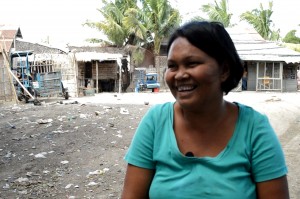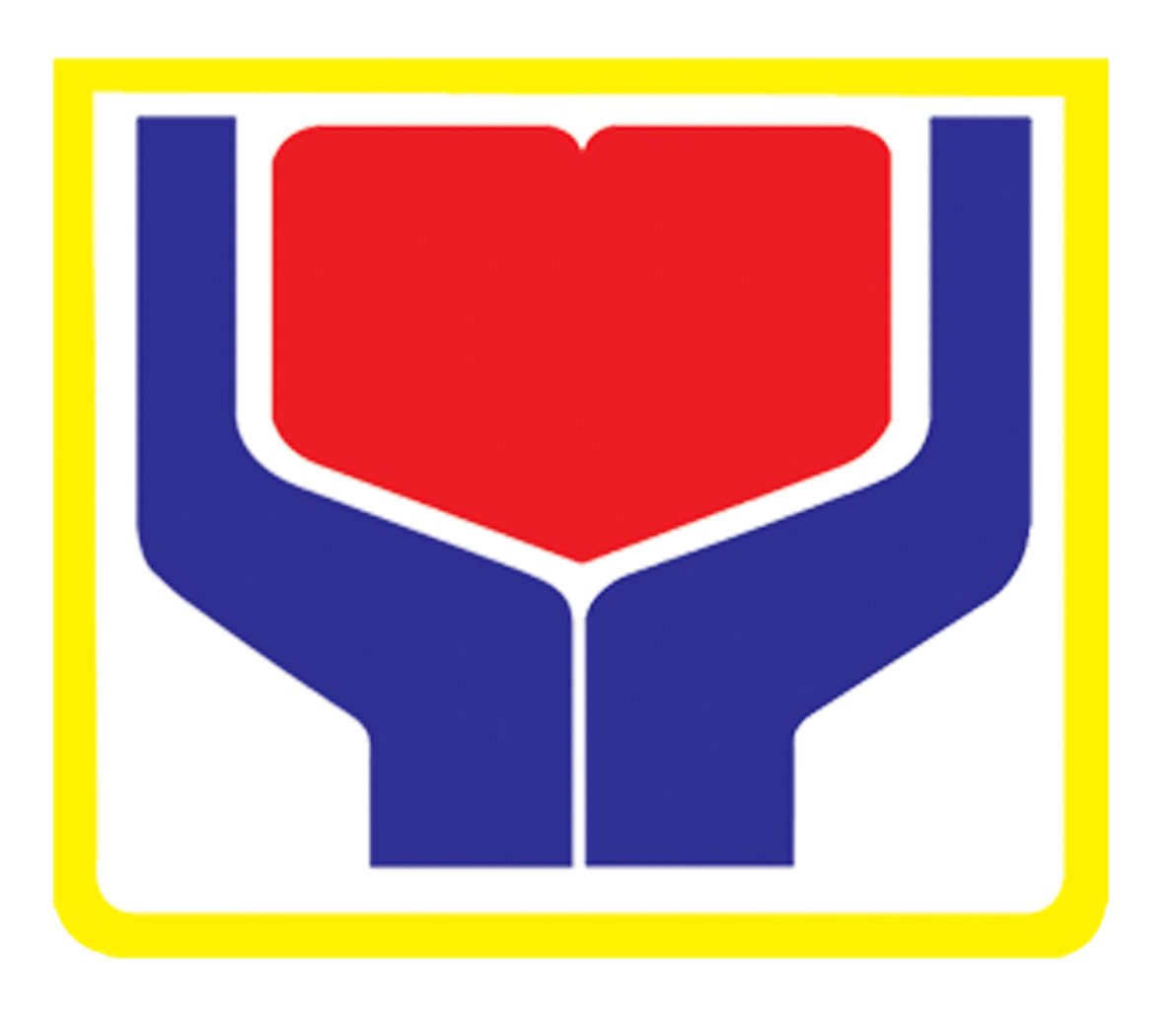
When she heard of a promise of a better life, she did not think twice.
From their native land in Zamboanga, Celsa Sabturani, a Sama-Bajau, together with her husband and two children, went to Batangas City to start all over again.
However, the promise of a better life—away from hunger and conflict—seemed to be out of reach. Celsa’s family was welcomed by another set of challenges—one that requires them to ask alms for a living, scavenge for scrap food and live in the streets.
Celsa, 38, cannot hide her tears when she remembers what kind of life they went through.
“Naalala ko dati, karga karga ‘nung anak ko yung mas bata n’yang kapatid. Namamalimos kami sa kalsada. ‘Pag wala kaming napalimusan, namumulot kami ng pagkain,” recalled Celsa.
She and her husband understood the risks of what they were doing. However, she admitted that asking for alms is the only way they know to easily earn something to put food on their hungry stomachs.
Now with seven children, Celsa is glad that her family is already away from what she describes as the ‘lowest of all kinds of life’ she can imagine.
Getting out of the streets
Celsa is grateful for the various opportunities that led them away from the streets.
She mentioned a group of missionaries who helped them start over again and taught them that children must be in school. Slowly, she began saving some money so that her husband can start a small business of selling accessories.
In 2012, Celsa’s family became a beneficiary of the Pantawid Pamilyang Pilipino Program, a core social protection program of the national government implemented by the Department of Social Welfare and Development (DSWD).
The Pantawid Pamilya invests on the human capital through the provision of cash grants to qualified poor families in support for the needs on health, nutrition and education of children age zero to 18.
Celsa’s family is one of the 2,673 indigenous peoples (IP) households who are beneficiaries of the program in the CALABARZON Region.
“Nakakatanggap ako ng PhP3,200 tuwing ikalawang buwan. Natustusan nito ang mga pangangailangan ng mga anak ko sa school. Sa awa ng Diyos, hindi na namamalimos ang mga anak namin,” said Celsa.
She also added that the Family Development Sessions (FDS) that she attends to as one of her co-responsibilities with the Pantawid Pamilya program taught her the value of education for her children.
“Natutunan ko na karapatan pala ng mga bata na makapag-aral. Kaya ngayon, nagsisikap kaming mag-asawa na pag-aralin sila. Natutunan naming hindi kami dapat umaasa sa ibang tao para sa ikabubuti ng aming pamilya,” she said.
The FDS, a component of the Pantawid Pamilya program, is a monthly gathering of parent-grantees that teaches various topics to beneficiaries including strengthening marital relationships, children’s rights, women’s rights, disaster preparedness and budget management among others.
No more getting back
With what she learned from the opportunities that came her way, Celsa vows never to get back to their old life.
“Sa kultura kasi naming mga Sama-Bajau, bawal maghanapbuhay ang mga babae. Pero ako, tumutulong ako sa asawa ko ngayon sa paghahanapbuhay dahil nakikita ko na ‘pag ang asawa ko lang ang magtatrabaho, kulang talaga. Ayaw ko nang bumalik sa dati naming buhay kaya magsusumikap ako sa aking paghahanapbuhay,” she shared.
Besides helping her husband with selling accessories, Celsa also now engages in a small buying, selling and pawning business of silver jewelry in their small Sama-Bajau community in Brgy. Malitam in Batangas City.
“Maraming nagsasabing kaming mga Sama-Bajau ay sakit sa ulo ng gobyerno at masasama kaming mga tao. Gusto kong magsikap at makapag-aral ang mga bata para hindi na maging ganun ang tingin sa amin ng mga tao,” Celsa shared with conviction.
Today, Celsa’s children are in school and no member of their family engages in begging alms for a living.
With all these, Celsa has now realized that it is only their hard work and determination that can fulfill the promise of a better life. For her, they’ll never stop working hard to continue making a difference not only for their family but for the whole Sama-Bajau community.#
